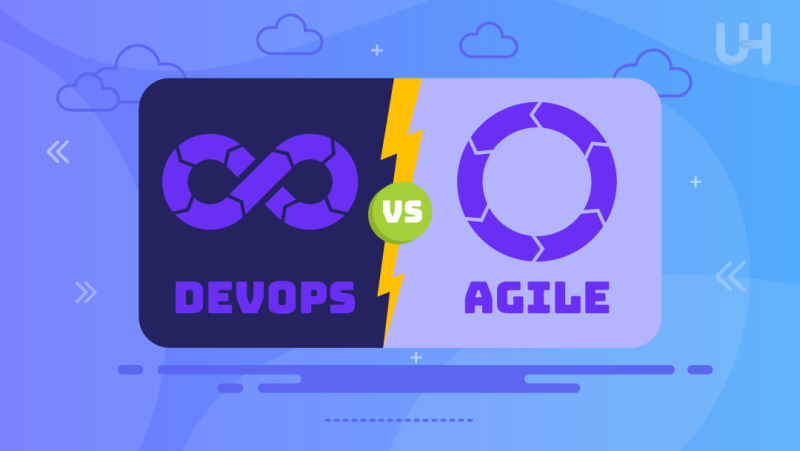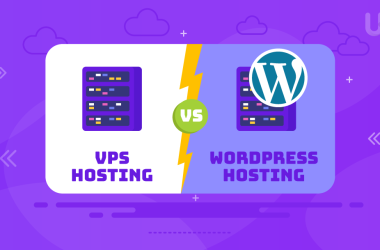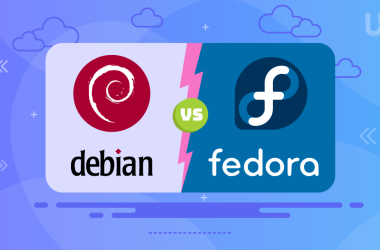The fast-moving world of software development is where DevOps vs Agile stands for two different methodologies with their benefits. Agile aims at better flexibility and responsiveness by working through iterative development and a continuous feedback loop in operations. On the other hand, DevOps aligns the development process with operations and puts more stress on continuous integration to speed up the process of deploying software delivery. Thus, they solve different yet indispensable problems in effectively producing modern software.
The article goes in-depth on the subtleties of Agile vs DevOps, their differences and similarities, and how they can possibly be integrated to drive efficiency in the software delivery process.
What is Agile?
Agile is a game-changing methodology; it has revolutionized software development by always proceeding with an iteration of development and testing throughout SDLC. It focuses on values and principles that center around collaboration, flexibility, continuous improvement, and high responsiveness to change, the Agile Manifesto. So, Agile embraces a dynamic and process-sensitive approach in which the requirements, and finally, the solutions, come out as an answer from the collaboration process carried out by a self-organizing and cross-functional team.
Agile supports several frameworks such as Scrum, Kanban, and Lean, all in support of the different needs of the projects and styles of organizations, guiding the development processes effectively. These frameworks enable the practical application of Agile principles and help design appropriate methods for effective project management and capable software development by overcoming the agile project management challenges. This adaptation makes the development process more streamlined and increases the ability to react quickly and effectively regarding changes in customer needs and market dynamics.
What is DevOps?

DevOps is a synergy between Development and Operations, an embodiment of a collection of practices for quickly automating and processing IT operations and software development. Ultimately, it’s meant to reduce the entire system development life cycle to enable quick deliveries, specifically for features, fixes, and updates aligned with business objectives. DevOps brings development and traditionally siloed operations teams into close integration and an efficient workflow.
DevOps is more than a set of practices. It’s a method for establishing collaboration and cooperation between developers and operations staff so that they can work together in every project phase throughout its lifecycle. This cultural shift is crucial for fostering continuous communication and shared responsibility, which enhances both the speed and quality of software delivery. By promoting such a level of integration, DevOps improves operational performance and aligns technology development with business needs, thereby driving better business value from investments in software.
Which Model To Use: DevOps or Agile
Here’s a concise comparison of DevOps and Agile methodologies, highlighting the key differences:
| Aspect | Agile | DevOps |
| Primary Focus | Optimizing the software development process to be more adaptive and iterative. | Integrating development and operations to streamline processes from development to deployment. |
| Scope | Mainly concerns the development phase, focusing on continuous improvement of the product. | Covers the entire software delivery process, from planning to support, emphasizing end-to-end solutions. |
| Goal | Enhance flexibility and responsiveness to customer feedback and changing requirements. | Achieve faster deployment cycles, higher efficiency, and better integration between teams. |
| Key Practices | Uses sprints, stand-ups, and scrums to manage parts of projects and adapt to changes quickly. | Implements automation in testing, deployment, and operational tasks to streamline workflows. |
| Stakeholder Engagement | Regular interaction with customers for feedback and iterations. | Collaboration across all teams involved in the software lifecycle often extends to business stakeholders. |
| Cultural Emphasis | Emphasizes individual interactions and collaboration over processes and tools. | Focuses on breaking down silos between departments and fostering a culture of shared responsibility. |
Even if Agile and DevOps sometimes seem like synonyms in the pursuit of efficiency and improvement, they target different stages and aspects of the software development process. Agile focuses more on the development process’s adaptability per se, customer feedback, and iterative work cycles.
Elevate Your Workflow with Cloudflare VPS!
Looking for a VPS that supports Agile and DevOps? Explore Ultahost Cloudflare VPS Hosting to ensure a seamless, secure, and efficient workflow. Upgrade today to boost your development and deployment cycles!
Similarities Between DevOps and Agile
The similarities between DevOps and Agile methodologies illustrate how both frameworks complement each other in enhancing software development and delivery processes:
| Aspect | Agile | DevOps | Shared Benefit |
| Core Objective | To manage and improve the development process. | To manage and improve the deployment process. | Enhance overall software delivery speed and responsiveness. |
| Flexibility | Emphasizes adaptability to change. | Supports dynamic changes in the production environment. | Both promote an environment that responds quickly to change. |
| Continuous Improvement | Focuses on iterative development with regular feedback. | Focuses on continuous integration and deployment. | Persistent focus on improving product and process quality. |
| Collaboration | Encourages close collaboration within development teams. | Promotes collaboration across development and operations teams. | Enhances communication and teamwork across all levels of production. |
| Feedback Loops | Uses customer feedback to refine products. | Uses operational feedback to optimize deployments. | Both utilize feedback to quickly adapt and improve. |
| Incremental Changes | Implements changes in small increments via sprints. | Applies small, frequent updates to ensure stability. | Reduces risk and allows for more manageable adjustments. |
Both Agile and DevOps are committed to the same direction in improving the software development and delivery process. They both emphasize flexibility, continuous improvement, and collaboration, albeit through slightly different mechanisms and stages of the software lifecycle. These commonalities assist organizations in a better way to realize the two approaches, each leveraging the best from the other in support of an innovation culture.
Tailored VPS Hosting for Agile and DevOps
In choosing VPS services for hosting, some general types of VPS offerings can be singled out:
Managed VPS Hosting
Managed VPS Hosting becomes extraordinarily beneficial with Agile and DevOps teams who would like to keep their focus on core activities like coding and deployments rather than server management. This kind of provisioning offers an arm’s length setup. The hosting provider takes on the responsibility for server maintenance. They also handle software updates and implement security measures for the services. This keeps the infrastructure optimized for different teams’needs. It ensures that the requirements of rapid iteration under Agile are met. The infrastructure also remains responsive to the continuous deployment of DevOps.
SSH VPS Hosting
SSH VPS hosting is very important because it gives secure shell access, a crucial element for the team working with DevOps practices. If access to the server environment is essential, developers and IT operations staff can have secure access to manage the server environment within precautionary controlled environments remotely. The same access helps agile teams become flexible in changing server settings, running applications, or managing database management systems directly by tweaking deployed applications for an agile, iterative development process.
Fast VPS Hosting
Fast VPS Hosting is all about speed, provided through high-speed SSD storage, generous bandwidth, and superior processing power for seamless and quick application loading; this quickly becomes integral to this factor. This Hosting is important for Agile and DevOps movements because an application must run seamlessly with the least latency. It should also show seamless activity and load fast. Additionally, the goal of frequent testing and updated development is a key factor.
Targeting only these special VPS hosting configurations can address organizations’ infrastructure needs in line with Agile and DevOps demand. This approach ensures a seamless, secure, and efficient flow supporting development and deployment cycles.
Conclusion
In conclusion, Agile and DevOps complement software development and delivery processes by their orientation and emphasis. Agile is concerned with adaptability and improvement at the iterative development stage, focusing on customer feedback and collaboration. DevOps catapults this joint ethos further into all phases of operations and emphasizes automation and seamless integration between development and operations to accelerate deployment and enhance efficiency. Both agree at one point: to optimize, in the best possible way, both the software life cycle and through improvement and collaboration. It would be impossible to achieve business agility or a competitive benefit in quickly changing technological landscapes.
Secure your Agile and DevOps projects with Ultahost, featuring robust SSL certificates for enhanced data protection. Elevate your team’s performance and security by investing in Ultahost today!
FAQ
What is the core objective of Agile?
To manage and improve development processes with flexibility and rapid iterations.
What does DevOps emphasize?
Automation and integration of development and operations for quicker deliveries.
Can Agile and DevOps be integrated?
Yes, integrating them enhances efficiency and streamlines software deliveries.
How do Agile and DevOps differ?
Agile focuses on the development process and adaptability, while DevOps integrates development with operations for faster and more efficient deployments.
Why is SSH access important in DevOps?
It enables secure, remote management of servers, which is crucial for continuous operations.








